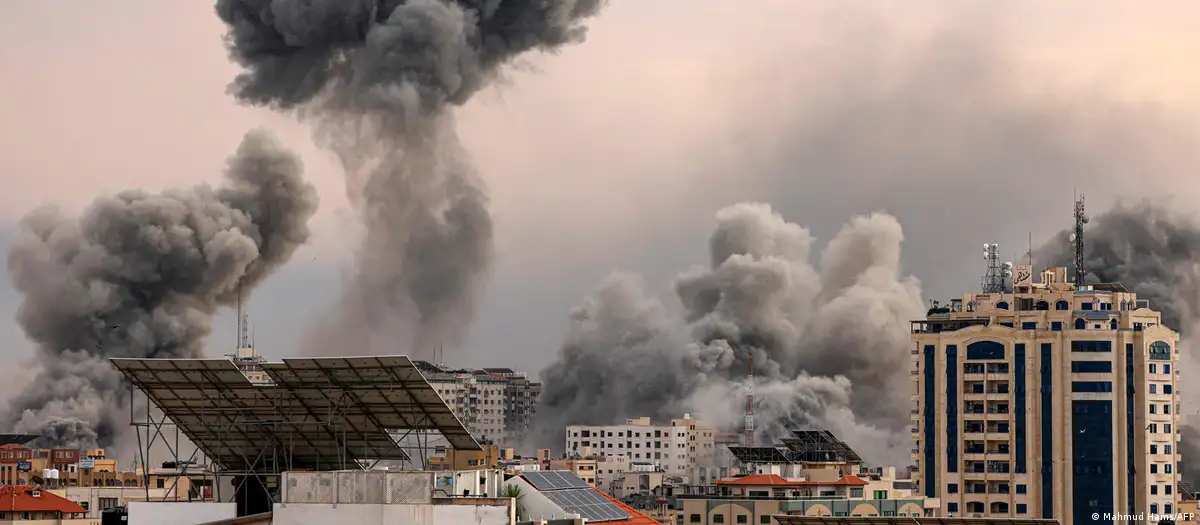Since the terrorist group’s offensive, the Kremlin has not taken sides with either the Palestinians or the Israelis. At the same time, it feeds the narrative that “the West” is to blame – as it does in the case of the war in Ukraine.
National flag at half-mast, a small bouquet of carnations in the colors of Israel, blue and white: Russian citizens flock to the Israeli embassy in Moscow to express their condolences to the victims of the Hamas attack on October 7. Police officers check their documents. The situation was calm until the evening, as it was in front of the Palestinian representation in the capital.
“Russia has traditionally cultivated good diplomatic relations with both sides, while maintaining a certain distance,” explains Middle East expert Ruslan Suleymanov, who lives in Azerbaijan. “These relations are partly even trusting, even after Russia attacked Ukraine and the relationship with Israel deteriorated to some extent.”
In this context, he recalls Russian Foreign Minister Serguei Lavrov’s comment in May 2022. Referring to Ukrainian President Volodimir Zelenski, he said that the “staunchest anti-Semites” would, as a rule, be Jews themselves. The Israeli government condemned Lavrov’s words: his then counterpart Jair Lapid called them “an unforgivable and outrageous statement and a terrible historical mistake”. “However, nothing irreparable has happened since then,” says Suleymanov.
Kremlin-Hamas contacts intensify
The same applies to relations with the Palestinians, continues the expert: “These contacts have even intensified recently. Hamas representatives have come to Moscow with increasing frequency, most recently in March of this year.”
He doubts that the Kremlin was informed about plans for a mass attack by the radical Islamic group Hamas. “Even the Israeli military intelligence service was totally surprised,” says the expert, adding that “the possibility of such a scenario was not fundamentally ruled out in Moscow, but no one expected such dimensions.”
Moscow political scientist Elena Suponina is also sure that the Kremlin leadership knew nothing about it. Moreover, she doesn’t believe that Russia could have contributed substantially to preventing the attack, not least because it had other priorities “on its western side” at the time, namely Ukraine.
On the other hand, she assumes that Moscow is currently “making efforts” to coordinate on the conflict, above all with its other partners in the region, especially Egypt, the United Arab Emirates, Qatar and Iran. But Russia will not take sides or engage in “terrorist activities”. In fact, Moscow’s official position is one of rejection of the current escalation of the conflict between Palestinians and Israelis. The Foreign Ministry defined it as “the result of a vicious circle of violence” and called for moderation.


“West”, the Kremlin’s eternal scapegoat
When discussing the issue on social media, Russian propagandists basically defend three theses: that mistakes by the “West” have caused the escalation; that wars have become normal; and that Russians who emigrated to Israel (as a result of the war against Ukraine) are now returning to their country of origin.
Former Russian president Dmitri Medvedev is very fond of appealing to the thesis that “the West”, above all the United States, is to blame for the Hamas offensive. In his Telegram channel, he claims that the American power is a “decisive player”, and makes a geopolitical bridge to Russia’s war against Ukraine.
According to the current vice-president of the Russian Security Council, the Middle East conflict would be exactly what “Washington and its allies would be better off dealing with”. Instead, however, the “crazy” Americans “meddled with us, helping neo-Nazis and playing two close peoples [Russians and Ukrainians] off against each other”.
Suleymanov doesn’t take Medvedev’s words seriously: “He’s so far from reality, he hasn’t had the slightest influence for a long time.” And he says that although the Kremlin also claims that “the West” is intentionally provoking such conflicts, it’s all just a conspiracy theory, because in reality the Israel-Palestine conflict has quite different motives.
In his opinion, the Kremlin would rather be profiting from the escalation of violence in the Middle East, since “the attack at least diverts attention from what the Russian army is doing in Ukraine”. Everything else is propaganda for internal Russian consumption – although the majority of the population is indifferent to the conflict in the Middle East, considering it too distant and complicated, the orientalist points out.
That may be true for most, but not for all. Otherwise, there wouldn’t be flowers in front of the Israeli embassy in Moscow, or a woman holding a “No to terrorism” sign. However, she didn’t hold her position for long: shortly afterwards the police took her away under arrest.
*** Translated by the DEFCONPress FYI Team ***
